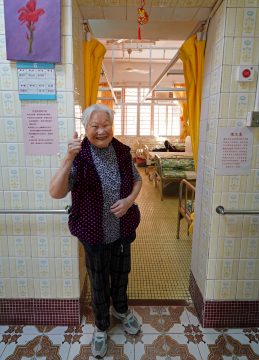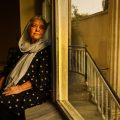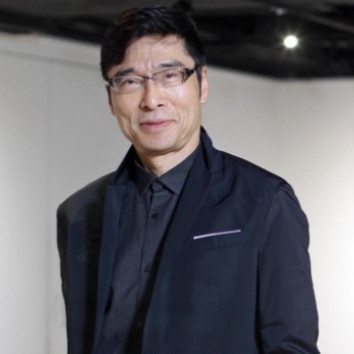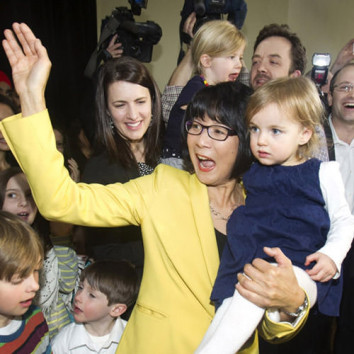
‘I felt so helpless’: Hong Kong elderly-care-home staff still processing trauma of pandemic
— July 15, 2023Elderly-care homes in Hong Kong lost 20 to 50 per cent of their residents to Covid-19 during the fifth wave of the pandemic in 2022

The trauma of the pandemic is still being felt among the owners and staff of Hong Kong’s private elderly-care homes, which bore the brunt of the crisis and saw thousands of aged residents die.
“A lot of our colleagues still talk about what happened; they are still trying to process it,” says Stephanie Law, managing director of Culture Homes in Hong Kong. Until recently it ran three homes in the city, in Sai Ying Pun, Hung Hom and Tuen Mun.
Of the 9,000-plus people who died during the peak of the pandemic in February to May 2022, more than 5,000 were unvaccinated elderly people, most of whom were in care homes.
The private care homes typically serve as transitional homes for old people waiting to be admitted to a government-subsidised home, with an average waiting time of 42 months. That has changed since the pandemic.
“Since more than 5,000 old people living in care homes died, [the waiting time] is only now 30 months, sometimes six months, resulting in a lower occupancy for many homes. Also, more old people prefer to live in their own homes after Covid-19, as there is a stronger resistance to [going into] elderly-care homes,” said Law.
In May, Culture Homes closed its two older care homes to focus on its newly built home in Tuen Mun, Forward Living Senior Community, which opened in 2021.
“We also see an opportunity for more privacy and independence for clients, so we built a new senior community where most rooms are private en suites with toilets, there is better infection control, and enhanced community life with flexible schedules,” she said.
The new home also focuses on specialised dementia care, transitional care and end-of-life care.
Law is also the executive director of the Elderly Services Association of Hong Kong, which represents more than 500 of the city’s 750 private care homes. She said care homes were unprepared for last year’s fifth wave of Covid-19.
“We didn’t have N95 masks, face shields or protective gear. The hospitals were overloaded and not accepting old people, and we weren’t able to send them to quarantine centres,” she says.
“Twenty per cent of the old people in our home passed away. I’ve seen homes where over 50 per cent died from Covid. I felt so helpless.”
Joanne (a pseudonym), who would provide only her first name, was the manager of one of Culture Homes’ residences. She was an intensive care unit nurse during the Sars epidemic in 2003 and had experience of separating a “dirty” team – that had assisted patients who had tested positive for the coronavirus – and a “clean” one.
But the strategy didn’t work in the care home which, like 90 per cent of private care homes, used partitions rather than walls to separate bed spaces, which made for easy transmission of the airborne coronavirus.
During the pandemic’s peak, she stayed full-time in the care home to look after the elderly residents for almost two months, not returning to her own family for fear of spreading the virus.
Seeing so many of the elderly residents fall ill, and being unable to send them to hospital or give them oxygen, has left her with post-traumatic stress disorder (PTSD).
“The homes where Covid spread quickly were those with partitions. At our elderly-care home in Tuen Mun which has full-height walls – no partitions – only one resident got Covid and it didn’t spread. It was much better in terms of control,” says Law.
The partitions are usually made of wood panelling and afford a measure of privacy for residents, while also meeting government regulations which stipulate each bed space must have natural light.
Full-height walls allow natural daylight only in bed spaces beside windows.
“Most elderly-care homes use a simple ventilation system, such as fans, and don’t have an individual ventilation system for each room. After Covid [the government] is starting to think about it, but they can’t figure out how to change this style because if they change it, more than 90 per cent of Hong Kong elderly-care homes would be affected,” said Joe Chan, executive director of nursing-home operator GranYet.
About 95 per cent of Hong Kong’s private elderly-care homes are family-run. Most of the homes were established in the 1970s and ’80s and are now run by the second and third generations of these families.
When Law’s father, an architect, opened his first home in 2001, most care homes were set up dormitory style with four to five beds in each room.
“It is tough times for private care homes; most are now running at 70 per cent occupancy. For many chains, it’s economies of scale so that they can still survive,” Law says.
Chan is a second-generation owner – his father established GranYet in 1993. After completing an engineering degree and working as an engineer for seven years, he joined the family business in 2013 and says his experience in IT has helped him improve the home, including using safety sensors to quickly detect if a resident has had a fall.
“This is not an eye-catching industry, so no big industry players are interested; it’s a long-standing family industry,” says Chan, who runs the family’s eight homes with his brother Aaron.In the wake of the pandemic, the government has introduced new regulations for care homes, including raising the minimum floor space per resident from 6.5 to 9.5 square metres (70 to 130 sq ft), requiring all homes to have a resident nurse, and increasing the ratio of staff to residents.
Homes will be given an eight-year grace period and those that don’t comply with the new measures will be told to close.
Operators of private care homes are struggling to adapt. Chan is committed to providing a top-notch service for elderly residents and wants to comply, but says he’s competing with local hospitals for staff.
“We know with more people we can deliver a better service, but where do these people come from?” he asks.
“We are fighting the hospitals to get the nurses. And there are not enough physiotherapists in Hong Kong. The average salary for a fresh graduate is HK$38,000 (US$4,850); because of the demand some can earn HK$60,000 right after graduation.
“If we don’t hire them, we will get a warning from the Social Welfare Department, so everyone fights for them.”
As a way of processing the trauma of the pandemic and of thanking the dedicated staff, many of whom locked themselves in care homes to serve the elderly residents, The Elderly Services Association of Hong Kong published a book, Strive Unremittingly During Covid – True Stories of Elderly Homes Fighting Covid.
It serves as a record of what happened during those dark weeks, and highlights the experiences of individual care homes and carers.
“In Canada there was an exodus of staff in the care home [sector], but we didn’t have that in Hong Kong; many of them stayed and continued to look after residents even when they had Covid themselves,” said Law.
At the beginning of the fifth wave of infections, Chan was worried that his staff would all take sick leave and there would be no one to look after the elderly residents, but most stayed on to work unless they were feeling really unwell.
Without their dedication, he says the death rate would have been higher. He’s also grateful for the understanding of residents’ family members, many of whom didn’t get to see their elderly relatives before they died.
“We had a lot of support from the relatives – they understood our situation is hard and didn’t [put] a lot of pressure [on] us.
“Some sent us some food and cake and wrote thank you cards that helped keep up morale, and we had a lot of donations from the community,” Chan says.
In May 2022, GranYet opened a new home in Fanling – a 25,000 sq ft facility with 222 beds and plenty of common areas for recreation and exercise.
Chan wants to make a positive change in the industry and hopes the government can better understand the challenges they face.
“Landlords know how our business operates and know our pain point, that we can’t move easily. They also give us very short-term leases, so we don’t have the confidence to invest.
“This is one of the main [reasons] why our industry is moving so slowly. We’d like it if the government could do something about this,” he says.
Original Link: SCMP









